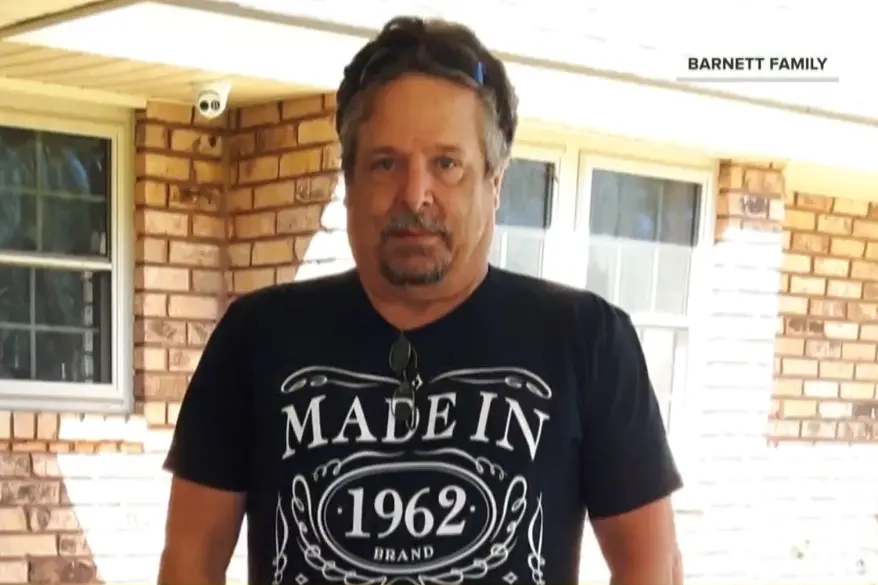CHARLESTON, SC—The Charleston County Coroner’s Office released its official report revealing the cause of death of 62-year-old John Mitchell Barnett, a Boeing whistleblower who was found dead in his truck on March 9. The official cause of death was determined to be a single gunshot wound to the head, the manner of death, suicide.

Barnett was a former Boeing employee who retired in 2017 from his role as a quality control engineer. He rose to whistleblower status after claiming the aerospace manufacturing company had rushed its 787 Dreamliner to completion, compromising safety. Barnett also claimed the company had retaliated against him and was continually harassing and spying on him.
In January of this year Barnett told reporters with TMZ that he had concerns that Boeing was returning its 737 MAX 9 back to flights too quickly after an incident when an Alaska Airlines plane’s door blew off mid-flight.
Barnett was in the middle of a lawsuit against the aerospace juggernaut under the Wendell H. Ford Aviation Investment and Reform Act for the 21st Century (AIR-21) in which he and his legal team were making the case that Boeing had formed a hostile work environment and forced him into an early retirement. Barnett had failed to show up to his second deposition in this case which prompted his attorney to request a welfare check. He was found dead in his truck in the parking lot of the hotel he was staying in.
🇺🇸 BOEING WHISTLEBLOWER'S SUICIDE NOTE: "I PRAY THEY PAY"
John Barnett was found dead on March 9, just before his scheduled testimony against the aerospace giant.
Barnett's note:
"I pray Boeing pays…
Whistleblowing protection is f* up!
America, come together or die!
To… pic.twitter.com/XwzNwy8VN1
— Mario Nawfal (@MarioNawfal) May 18, 2024
Hotel video surveillance showed Barnett leaving the Holiday Inn around 7:26 p.m. on March 8 and entering his orange Dodge Ram truck. He left the parking lot before returning shortly after, backing into a parking spot. Nobody was seen entering or approaching Barnett’s vehicle. At no point, from the time Barnett parked his truck to the Charleston Fire Department arriving on scene, did anyone attempt to contact him, surveillance videos show.
Hotel staff discovered Barnett unresponsive in his vehicle the next morning around 10 a.m. and promptly called 911. First responders forced entry into his vehicle, which was locked from this inside, and discovered Barnett with a semi-automatic Smith and Wesson pistol in his right hand and a gunshot wound to his head. He was pronounced dead at 10:33 a.m.
Barnett had legally purchased the firearm back in 2000. His fingerprints were found on the pistol’s grip.
The Charleston Coroner’s report released yesterday stated that gunshot residue was found on Barnett’s right hand and a single 9mm bullet casing was found on the floor of his truck. He had also left a suicide note written in a notebook.
Interviews were conducted with Barnett’s family, attorneys, and healthcare professionals who revealed that Barnett was under chronic stress in the context of the lawsuit, suffered from anxiety and post-traumatic stress disorder, and grieved the death of his wife. His attorney added that the two had recently discussed increasing the dose of his anti-anxiety medication.
Barnett was the second Boeing whistleblower who died this year. The other, 45-year-old Josh Dean, a former quality auditor at Boeing supplier Spirit AeroSystems, was pronounced dead on April 30 due to a serious bacterial infection from pneumonia.
Like Barnett, Dean was known to be a whistleblower when he claimed Spirit AeroSystems had ignored manufacturing defects in Boeing’s 737 MAX. Also similar to Barnett Dean was in the midst of a lawsuit against Spirit and the Federal Aviation Administration alleging “serious and gross misconduct by senior quality management of the Boeing 737 production line.”
Dean was fired from Spirit in 2023 for what the company called pandemic-related job cuts. He filed a complaint with the Department of Labor alleging his termination was retaliation for raising safety concerns on the 737 MAX.
Despite being described by his family as being extremely healthy and in good shape, Dean was quickly ushered to a hospital in Kansas in late April when he had trouble breathing. His condition deteriorated rapidly, and he was airlifted to another hospital in Oklahoma City where he was put on an ECMO machine. He was heavily sedated and put on dialysis. A CT scan indicated he had suffered from a stroke.
Author: Kienan Briscoe












